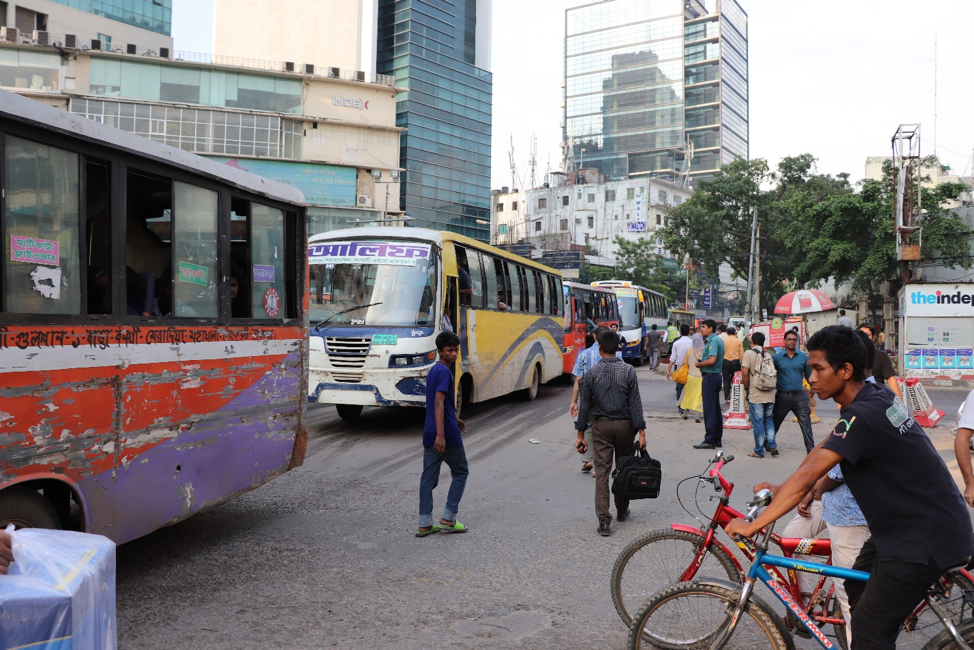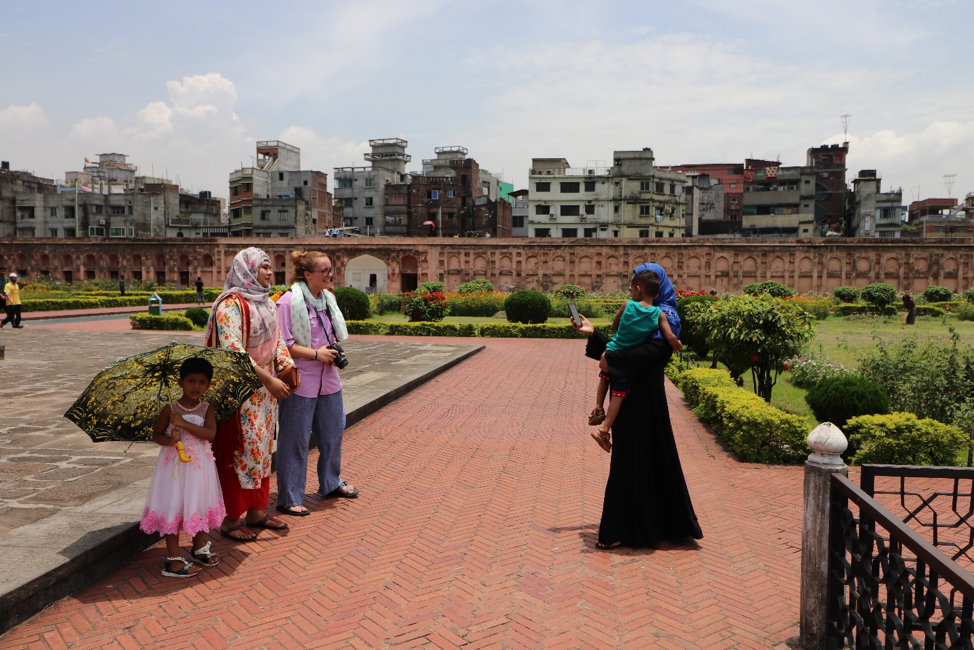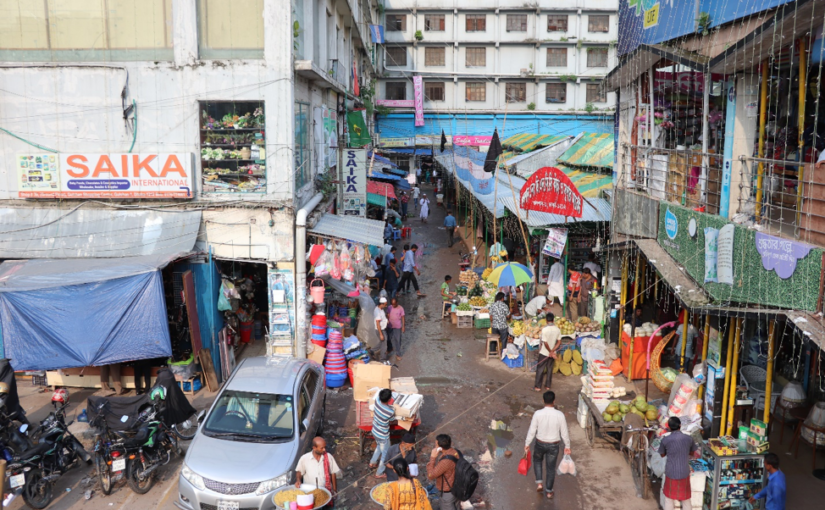by: Chista Keramati
Chista Keramati is working with the Bangladesh Centre for Advanced Studies (BCAS) in Dhaka. Chista and her teammate, Jamie, will be studying the gendered aspect of climate change by looking at policies and programs in Bangladesh that address the vulnerabilities of women to climate-induced hazards. The team is conducting fieldwork in three different rural areas of Bangladesh, each prone to a different mix of climate disasters.
The pilot announced that our plane would be landing in 40 minutes at Shahjalal International Airport in Dhaka. Looking out the window, I tried to see with my own eyes the Bangladesh landscape. I spotted settlements here and there, green areas of what I assumed were cultivated land, and what I initially perceived as “dirt roads.” I asked myself, “But, wait! Where is all the water that I read so much about?,” only to realize that the “dirt roads” were not really roads but rivers whose brown color comes from the huge amount of sediment they carry with them along the way. I gazed in awe at the magnificent web of rivers and wetlands that were running across the landscape below our feet.

That feeling of awe has not only remained but grown with me at every scenic or human encounter here. Life in Dhaka involves learning not necessarily new things, but everything in a new and different way. This new learning experience encompasses everything from the very basic activity of crossing the street (a double challenge when you are not used to people driving on the left-hand side of the road, and overcrowded streets that rarely have street signs) to working with our partner organization BCAS.
FIRST MEETING WITH OUR PROJECT PARTNER
Our first week in Dhaka involved extensive meetings with BCAS members, together with our professor Tracy Kijewski-Correa. We heard about the BCAS team’s hopes and aspirations not just for a better life for the people of Bangladesh, but for the whole world.
On our first meeting with Dr. Atiq Rahman, the founder of BCAS, he explained how the neat and well-organized knowledge in written reports and proposals do not necessarily match the messy realities on the ground.
I can see what he means. The realities we read about on paper before coming here have felt different when faced and experienced first-hand. I am seeing with my own eyes the amount of water running across the Bangladesh landscape, and how this might relate to climate change. And instead of seeing images of busy streets, I am now crossing even the narrowest streets of Dhaka with special caution. I am relieved, too, to find that there are some female experts working at BCAS and that it is not an all-male organization. This is important to our research.
RESEARCHING GENDER AND CLIMATE CHANGE
As a team of two women interested in researching the gendered aspect of climate change in Bangladesh, we are trying to observe and learn as much as we can about the attitude towards women in this country. Of course, our own personal experience has been mixed with our identity as not just women, but non-Bangladeshi women. We are slowly getting used to attracting attention at every turn in the local market, and being asked to take selfies wherever we go site-seeing.
Another lesson I have learned is that Google Maps doesn’t help much with local transportation. When you are stuck in a street and don’t know how to get home, and you also don’t know the local language, you can still rely on the kindness of strangers to help you take a CNG taxi (a small motor vehicle that runs with compressed natural gas). I have learned that once you ask someone for help, they feel responsible for you until their job of helping you is completed successfully.

As I am writing the final words of this blog post, I come across another cause for celebration, not necessarily related to our personal experience here, but surely related to Bangladeshi women: the Bangladesh women’s cricket team has just won the Asia Cup, making it the first Bangladeshi team ever to win this championship. It is both funny and endearing to read the comment of Soumya Sarkar, a Bangladeshi male cricket player on this great achievement, saying, “the moment is a proud one for us. This is the first time the girls won something, and that has come at the Asia Cup. They have won a big title, whereas the boys have won none till date, despite all the facilities.”[1]
Kudos to the women of Bangladesh! Our team is here to learn from you all.
[1] https://www.dhakatribune.com/sport/cricket/2018/06/10/bangladesh-women-elect-to-field-in-asia-cup-final

